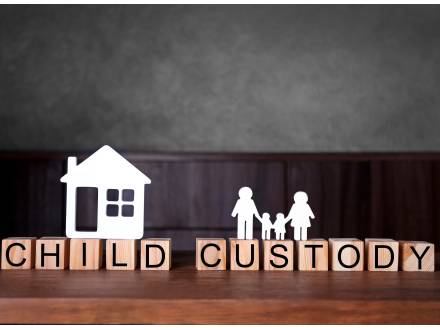The Difference Between Co-Parenting and Child Custody
 Working out child custody agreements (the allocation of parental responsibilities) can be challenging, to say the least. Divorce is hard on all those involved, especially the children. While courts do their best to make decisions that reflect the best interests of the children involved, there may still be bumps along the way. Historically, one parent is designated as the primary caregiver while the other parent receives parenting time (visitation).
Working out child custody agreements (the allocation of parental responsibilities) can be challenging, to say the least. Divorce is hard on all those involved, especially the children. While courts do their best to make decisions that reflect the best interests of the children involved, there may still be bumps along the way. Historically, one parent is designated as the primary caregiver while the other parent receives parenting time (visitation).
However, over the past decade, the trend has been toward a custody agreement known as co-parenting. Advocates of co-parenting say it provides more stability for the children as the parents have a more equal share in parenting. Opponents of the co-parenting model say it is unrealistic and difficult to accomplish. If you are currently facing child custody issues, speaking to an Oswego, IL, family law attorney can be beneficial.
What is "Traditional" Child Custody?
Traditional custody decisions virtually always proposed one parent as the primary caregiver with regular, scheduled visitation for the other parent. The children live with the primary caregiver, and while both parents may be involved in making major decisions regarding religion, education, and health, the primary caregiver parent typically makes day-to-day parenting decisions.
Weekly visitation is the norm in a traditional custody decision unless the parents live a significant distance from one another. If this is the case, the parent awarded visitation may only see his or her children on certain holidays and for several weeks during summer break.
What Do Co-Parenting Agreements Entail?
Co-parenting is a form of custody agreement that seeks to involve both parents equally, providing a more stable relationship with each parent. In theory, co-parenting arrangements result in shared decisions regarding the well-being of the children as well as:
- Equal access to school and medical records
- More time spent with the children for both parents.
- Shared parenting time that is based on convenient scheduling for both parents
- Necessary schedule changes are accepted with grace by both parents.
- Freedom on the part of both parents to focus on raising the couple’s children together.
- Arrangements that allow both parents to attend family events, dinners, holidays, vacations, etc.
Three Types of Co-Parenting Agreements
The reality of co-parenting may be different than the theory. There are three distinct types of co-parenting arrangements that parents can choose from. Parallel co-parenting is the most common type, making up more than half of all co-parenting arrangements. The parents are largely emotionally disengaged from one another, with little communication or coordination. While the parents have equal time, they are not parenting together.
Conflicted co-parenting occurs when parents communicate poorly, have conflict, and fail to emotionally disengage from one another. It can be extremely difficult, even damaging, to children. Although the parents may (grudgingly) split the time spent with the children, each parent has different parenting styles, rules, priorities, and schedules because they cannot agree on these issues.
While cooperative co-parenting is the most beneficial for children, it only accounts for about one-quarter of all co-parenting agreements. Parents who engage in cooperative co-parenting support one another while working together to make plans for their children. There is little conflict in cooperative co-parenting agreements, which often leads to more resilient children.
When each parent has a vastly different lifestyle and rules, it can be difficult for children to adjust. Each parent’s job can make conflicting schedules common, requiring frequent accommodation. When parents engage in parallel or conflicted co-parenting, it can be damaging to children who might benefit from a more traditional type of custody agreement.
Contact a Kendall County, IL Parental Responsibilities Lawyer
Each parenting and custody situation is different, requiring unique solutions facilitated by a Yorkville, IL, parental responsibilities attorney from The Law Office of Matthew M. Williams, P.C.. Attorney Williams has experience with troubled youth and focuses his practice on mediation and collaborative divorce to make the process more amicable. Call 630-409-8184 to schedule an initial meeting to discuss your issues.









